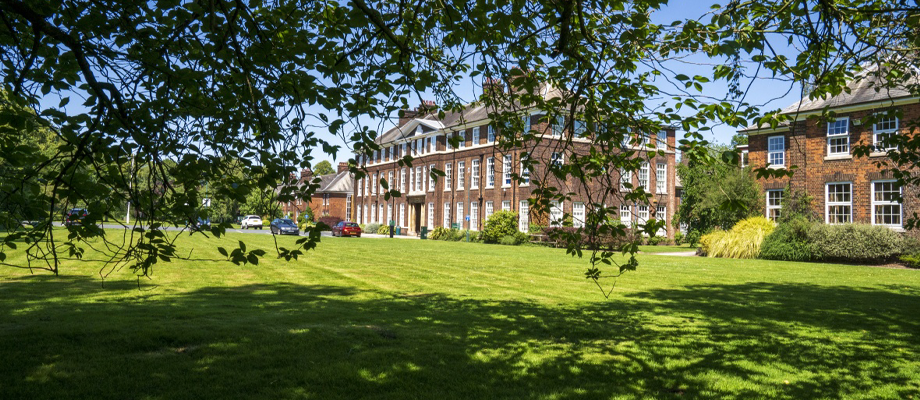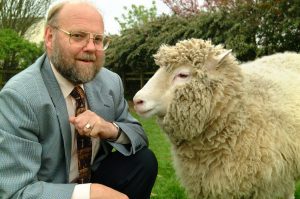
Professor Sir Ian Wilmut, 1944-2023
September 19th, 2023
The university is saddened to hear that Professor Sir Ian Wilmut passed away on Sunday 10 September 2023 at the age of 79.
Professor Wilmut is best remembered for leading the programme of research at the Roslin Institute during the 1990’s that led to the birth of ‘Dolly the sheep’, the first animal to be cloned from an adult cell.
This has frequently been heralded as one of the great scientific achievements of the 20th century, the legacy of which continues to this day, particularly in the field of stem cell research and regenerative medicine.
However, Ian’s interests went further than that, and his legacy is punctuated by numerous significant achievements spanning the last half century.
Ian was born near Stratford-upon-Avon in 1944 where he spent his early years before moving with his family to Scarborough. It was at school there that he developed his interest in biology, and weekend work on local farms in Yorkshire inspired him to study Agriculture.
Few colleagues at the university will realise that Ian undertook these studies at the Sutton Bonington Campus here at Nottingham; although he saw the light at the end of year one and switched to Animal Science!
Later in 1973, Ian would accept a position in Edinburgh at what is now known as the Roslin Institute. A major component of his early research was directed towards understanding the cause of embryonic loss during pregnancy in sheep and pigs.
It was around this time, during the mid-1980s, that Roslin embarked on a programme of work to create genetically modified livestock. One goal was to create transgenic livestock capable of secreting human proteins in milk that, upon extraction, would be suitable for therapeutic use.
The appointment of Keith Campbell as a post-doctoral fellow in Ian’s lab around 1990 was the turning point in the team’s endeavours. In the series of studies that followed, the first cloned animals (sheep) derived from a cultured cell line were born in 1995 (i.e., Megan and Morag), to be followed a year later by the birth of the first animal to be cloned from a fully differentiated adult cell (i.e., Dolly). The world was never quite the same again.
Dolly was significant because her ‘creation’ demonstrated that fully differentiated and highly specialised cells within the body contained all the genetic information required to create a new individual.
The birth of Dolly, therefore, overturned existing dogmas and was the catalyst for rapid progress subsequently in stem cell research and regenerative medicine more generally.
Ian picked up numerous accolades over the years, including the 2008 Shaw Prize which he shared with Professors Keith Campbell and Shinya Yamanaka.
Ian’s passing, following on from that of Keith a decade or so earlier, marks the end of an incredible era in the field of developmental biology.
Our collective thoughts and condolences are with Ian’s family and friends at this difficult time.
Leave a Reply
Other

Need news? See you on SharePoint
After 14 years of service, Campus News is being retired as the university’s staff news platform. […]

Roads and car parks closed for refurbishing work
As part of ongoing road improvements at the university, works will be taking place to resurface […]

